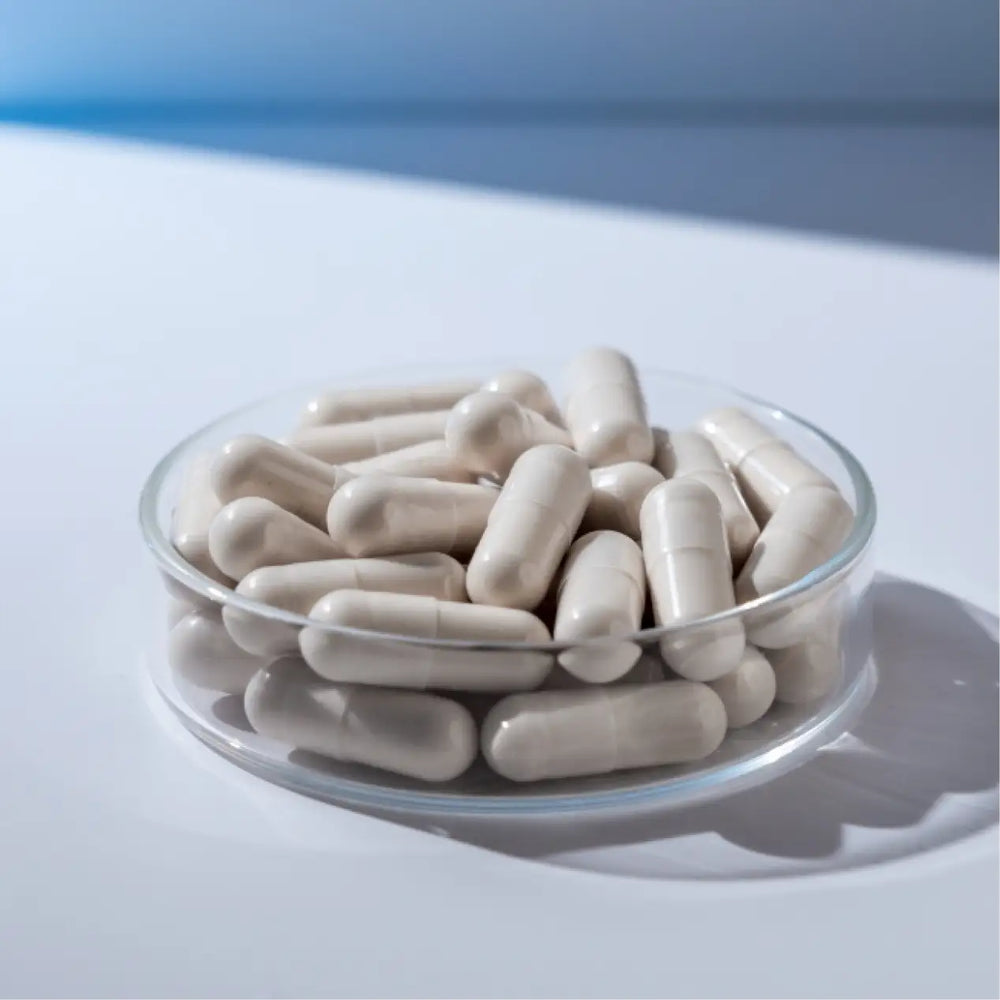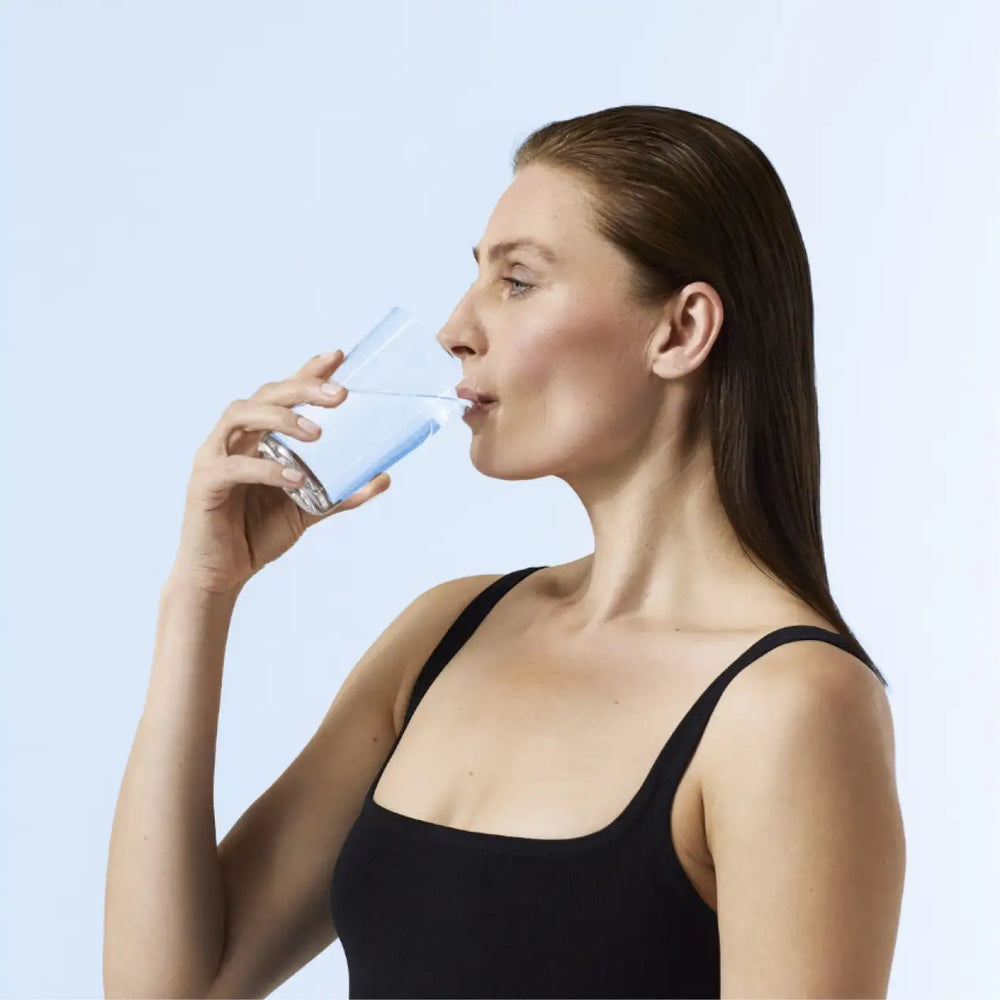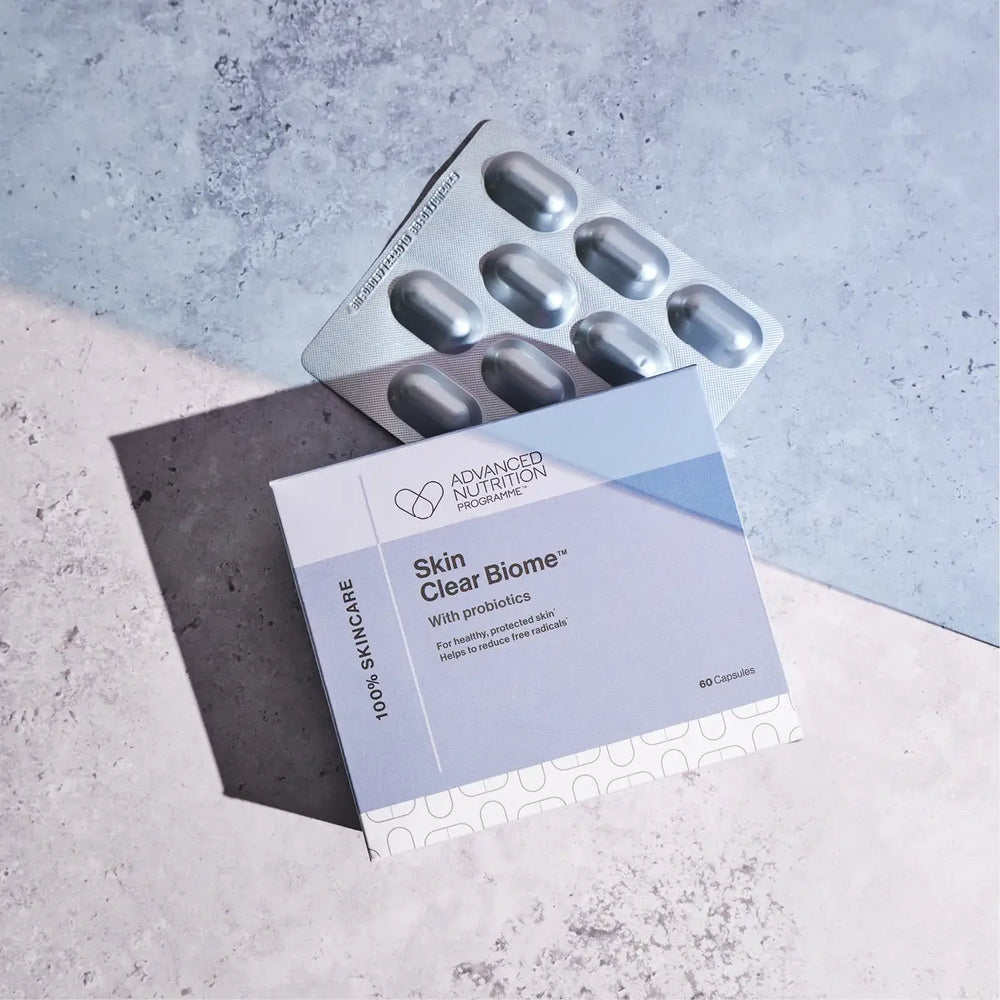Benefits of Collagen Supplements for Beauty, Skin & Health
Posted on August 01 2022
Collagen beauty supplements have become increasingly popular over the past several years and continue to grow in popularity. They are considered by many as part of a holistic skincare approach, and thought to provide age prevention, hydration, and overall skin rejuvenation benefits from the inside out. However, collagen-based products have also been met with considerable speculation in recent times, with mixed messaging being disseminated throughout media.
As a relatively new concept under the ‘nutraceuticals’ category (ie. utilising supplements and food-derived micronutrients for skin health) new research on the efficacy of collagen supplementation for skin health is still growing. There are many considerations when it comes to collagen, and various factors that can influence whether certain sources will impact the skin. Here’s what you should know about collagen, both within supplements and within the body.
What is Collagen and why is it important?
Many will already understand collagen to be the protein within the body that provides structure, shape, support, and cushioning beneath the skin. When it comes to beauty, we ultimately strive to induce greater collagen production so that the skin appears more youthful, plump, and ‘bouncy’. This is where topical skincare products like vitamin C and vitamin A, along with clinical skin treatments like laser and micro-needling, enter in.
During our younger years, the body produces collagen in abundance, via our fibroblast cells. As with any cellular function, this gradually slows down as we age, with collagen production ceasing during senior years. This, in addition to fat loss and a degradation in bone density, will manifest on the skin as loss of volume, hollowing, and dropping - the classic signs of ageing we are all familiar with. Another important factor to note is that we have several types of collagen within the body.
Collagen is not only found in the skin and isn’t just important for a youthful complexion. There are 28 different types of collagen in total, the most common including (1):
- Type I: the most common, which can be found in all connective tissue
- Type ll: serves as cushioning in our joints and intervertebral discs
- Type lll: found in the skin and in our blood vessels
- Type lV: found in the kidneys, ears, and eyes
As you can see, collagen is not as simple as it may seem upon first glance. So, what does this all mean when it comes to collagen for skin, and collagen supplements for beauty?
How is Collagen Transported from Gut to Skin?
One of the reasons that mixed messaging surrounding collagen has appeared on social media is based on the concept that collagen can be consumed in dietary form and then be transported to the skin, making it plumper and more youthful. This is not quite the case, so let’s explore this process further. Collagen in tablets and beauty powders is generally derived from marine or bovine sources. You may have also noticed products such as bone broth, containing high collagen content, being used for health and beauty support.
As we can see from above, the body synthesises different forms of collagen based on what, or where, it is required. When we consume collagen from animals, unfortunately, our bodies cannot use it as our own. Upon consumption, just like any other food, it passes through our digestive tract, where it is met with a number of enzymes in order for it to be broken down. Through any number of conversions, food is transformed into a state in which it can pass through our digestive mucosa, into the bloodstream, and be used as the body requires.
For water-soluble vitamins such as C and Bs, these pass through the kidneys for filtration and absorption. For fat-soluble vitamins like D, E and K, these are absorbed and stored in the liver. When we consume collagen, like that in bone broth, this is quite a large molecular substance, thus will need to be broken down through digestion. Enzymes convert collagen into much smaller collagen peptides, which can then be absorbed into the bloodstream.

How Do Collagen Peptides Work?
During this complex digestive process, in which substances are broken down by enzymes and converted any number of times, much is lost along the way. This is why only a fraction of foods, vitamins, and medications we consume upon swallowing actually make it to the bloodstream. This is also why certain specific medications are administered by healthcare physicians below the tongue, as they are absorbed directly into the bloodstream as opposed to passing through the digestive tract. And so for collagen supplements, it makes much more sense to utilise collagen peptides. This means collagen has been hydrolysed, or chemically broken down, into a form which is bioavailable and readily absorbed by the body, without needing to be broken down further by digestive enzymes.
Several studies have demonstrated that the body’s wound-healing processes and capacity can be amplified through the use of collagen peptides, however the exact mechanisms of action are yet to be completely understood (2). One benefit is thought to be that collagen peptides aid in the absorption of calcium and zinc (3).
This is perhaps why collagen supplementation has been proposed as a recommended supplementation in the ageing population and/or those at risk of age-associated conditions of bones and joints, such as osteoporosis and arthritis. However, since collagen is derived from animal sources, those seeking vegan solutions are limited. Which brings us to another type of collagen supplementation, that does not incorporate collagen itself.
How to Enhance Your Collagen Production
There are alternate options for collagen supplements that do not use collagen itself as an ingredient. This may be particularly noteworthy for vegans. For those seeking beauty powders and supplements to boost their skin health, promote hydration, and delay signs of ageing may instead find these benefits through micronutrients designed to enhance our natural collagen-producing abilities. By optimising the function of the cells in our skin, we can promote natural production of collagen for longer, as well as getting the most from other benefits like boosted healing and delayed signs of ageing through protection from cell damage.
Advanced Nutrition Programme’s Skin Collagen Support has been designed to do just this. Instead of using animal-derived collagen, this carefully considered blend incorporates ingredients, backed by numerous studies, that are shown to benefit our skin’s collagen in a number of ways, including:
- Fibroblast function: skin is producing its own natural collagen as best as it can through optimisation of fibroblast health and function.
- Damage protection: collagen fibres can be damaged significantly by free radicals. These occur naturally in the body but can be produced in excess as a result of pollution, pesticides, alcohol, poor diet, UV exposure, and simply as a result of ageing. The only thing that can neutralise free radicals are antioxidants - making them essential in any supplement designed to provide age-delaying benefits.
- Improved healing: another function that slows during ageing is our capacity for healing. When cellular repair processes are slowed, wounds take longer to heal, and the inflammatory cascade takes longer to reduce, causing even more damage and increasing signs of ageing. To further protect our natural collagen stores, anti-inflammatory ingredients can be used to combat this.

What Nutrients Boost Skin Function?
Vitamin C is one of the most important nutrients relating to collagen, as it is essential for the synthesis of collagen by fibroblast cells. Countless studies have been conducted on the use of vitamin C in relation to sports injuries, age-related diseases, and inflammatory conditions. It has shown to provide support in tissue regeneration, tendon and ligament healing, bone repair, and muscle repair (4).
Zinc is one of the most well-researched and highly regarded minerals in the use of inflammation reduction. This is why it can be found in most topical anti-inflammatory ointments as well as nutritional supplements designed for healing. Methylsulfonylmethane, or MSM, is a lesser-known plant-derived substance that has also shown excellent efficacy in its anti-inflammatory and skin-boosting properties.
Lastly is Superoxide Dismutase, or SOD. This is a powerful antioxidant, and while there are countless antioxidants available throughout skincare and supplements, SOD is the antioxidant that can be found naturally in the body, providing exceptional response to the most skin-damaging free radicals produced naturally. All of these, and more, can be found in Advanced Nutrition Programme’s Skin Collagen Support, providing full-spectrum collagen protection and skin health.
In summary, perhaps the most effective way to look after our collagen is perhaps not with collagen itself, but a range of ingredients that provide a more well-rounded approach to stimulating collagen, protecting existing collagen fibres, and maximising the natural function of our cells. This way, collagen is not the only benefit - so too is a more youthful, radiant, and energised complexion, and increased health and function throughout the body.
References
- https://www.healthline.com/nutrition/collagen-benefits
- https://pubmed.ncbi.nlm.nih.gov/35163025/
- https://www.ncbi.nlm.nih.gov/pmc/articles/PMC8780088/#:~:text=In%20addition%20to%20accelerating%20wound,structure%20and%20appearance%20of%20skin.
- https://www.mdpi.com/2075-4663/10/6/84/htm
Words by Mala McAlpin.
100% Skincare Benefits

Skin Consultation
To begin your 100% skincare journey today, complete the online consultation quiz, and we will suggest supplements to assist in improving skin health, personalising your supplements to address your key skin concerns.

Skin Rewards
Skin Rewards is free to join, and you'll receive 50 points as our welcome gift. The Skin Rewards Program has been created for skin lovers like you, offering exclusive benefits for purchases made exclusively at Advanced Nutrition Programme.

Product Subscription
Did you know that we offer subscription program? These allow you to enjoy the convenience of auto-shipment and discounted product rates. Our subscription plans are fully flexible with no fixed contract.

